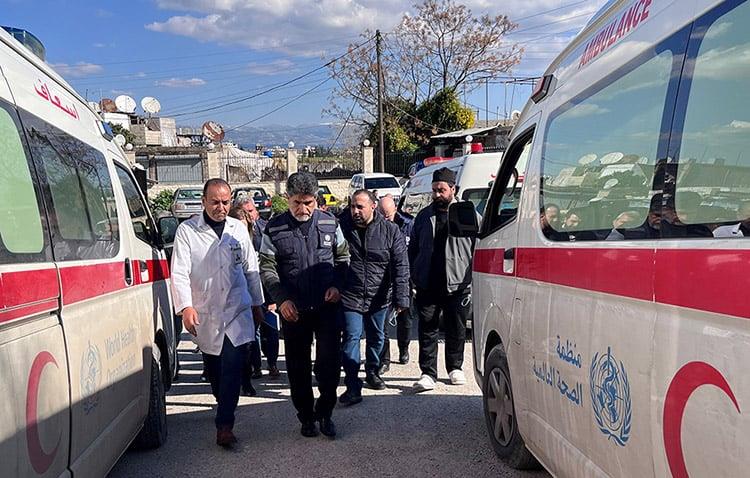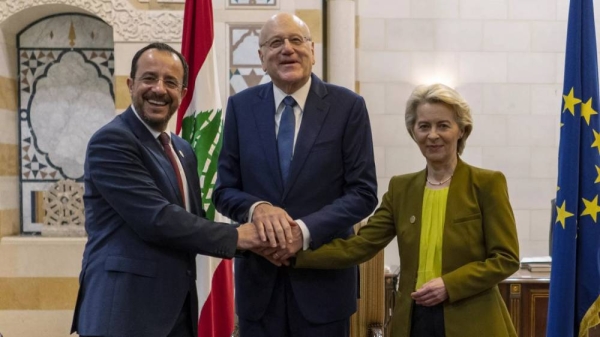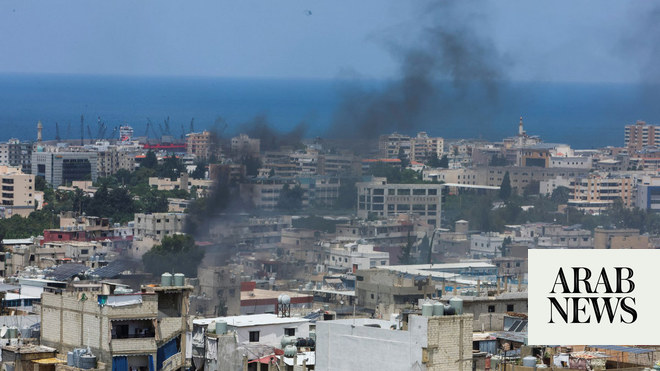
Syrian refugees in Lebanon, even those with an official residence, are experiencing discrimination amid political divisions surrounding their return
BEIRUT: At a conference in Brussels on Tuesday and Wednesday, Lebanon will present the same plan it presented two years ago to alleviate its refugee burden.
The plan aims to help 1.5 million Lebanese, 1.5 million Syrian refugees and more than 208,000 Palestinian refugees.
“After eight years of war, Syrian refugees have become increasingly exhausted, and 70 percent of them are in poverty,” Nasser Yassin, director of research at the Issam Fares Institute for Public Policy and International Affairs, told Arab News.
“This conference comes at a time of political clashes in Lebanon between a party that wants a rapid return of the refugees, and a party that insists on respecting refugee rights and the right to a safe return.”
Lebanese authorities are concerned by “a trend among European donor countries of merging funds allocated to Lebanon for the refugee crisis and those pledged … to support Lebanon,” Yassin said.
Nadim Munla, Lebanese Prime Minister Saad Hariri’s adviser on refugees, said the country “can no longer bear the burden of the crisis. It’s no longer a humanitarian crisis. It’s now threatening Lebanon’s growth and stability.”
Hariri had previously said: “In view of the increasing talk about refugees’ return, it’s dangerous to consider that it actually happened or will happen very soon, and thus overlook the increasing needs of Syrian refugees and host communities in Lebanon.”
Joelle Bassoul, the representative in Lebanon of Save the Children, said the country “is asking for $1.2 billion to assist host communities, $1 billion to help Syrian refugees on its territory, in addition to assisting Palestinian refugees in light of the decline in UNRWA’s (the UN Relief and Works Agency) contributions.”
She added that “93 percent of Syrian refugees (in Lebanon) are living in cities, which means they’re paying expenses without receiving any help.”
She said: “A total of 1 million births (among Syrian refugees) were registered in host countries since the start of the crisis, including 178,000 in Lebanon.”
George Ghali, executive director of the ALEF human rights organization in Lebanon, said: “The resettlement program for Syrian refugees in Western countries lost some momentum in recent years … This clearly reflects the international community’s attempt to evade its responsibilities toward host countries.”
Syrian refugees in Lebanon, even those with an official residence, are experiencing discrimination amid political divisions surrounding their return.
This situation is mainly reflected through the closure of Syrian-owned shops, and arrests of Syrians for lacking an official residency or other documents.
Some Syrian refugees say they have been offered tourist visas to France, where — they have been told — they can request asylum, in exchange for them selling their land and property in Syria.
Some have accepted the offer, and have been transported in containers from the port of Tripoli in northern Lebanon.
“The Syrian regime’s allies and the international community must pressure it to facilitate the return process through a number of measures to reflect its good intentions,” said Lebanese Minister of Social Affairs Richard Kouyoumjian.
He added that “90 percent of the refugees in Lebanon want to go back. We’d agreed on technical coordination with Syria to facilitate the journey of those wishing to return.”
The UN High Commissioner for Refugees Filippo Grandi said: “The refugees need to be assured that they’ll have a safe, secure and decent return. They’ve voiced concerns about five main areas, including safety, housing, access to services, legal issues and job opportunities.”
He added: “The commission is working in Syria to remove obstacles hampering refugees’ return, through a number of measures such as reconstructing schools and providing basic humanitarian assistance to allow reintegration.”
Grandi said: “The return has to be progressive, and the Syrian government has a significant role in ensuring suitable conditions.” He added that “165,000 refugees have already returned to their country.”












